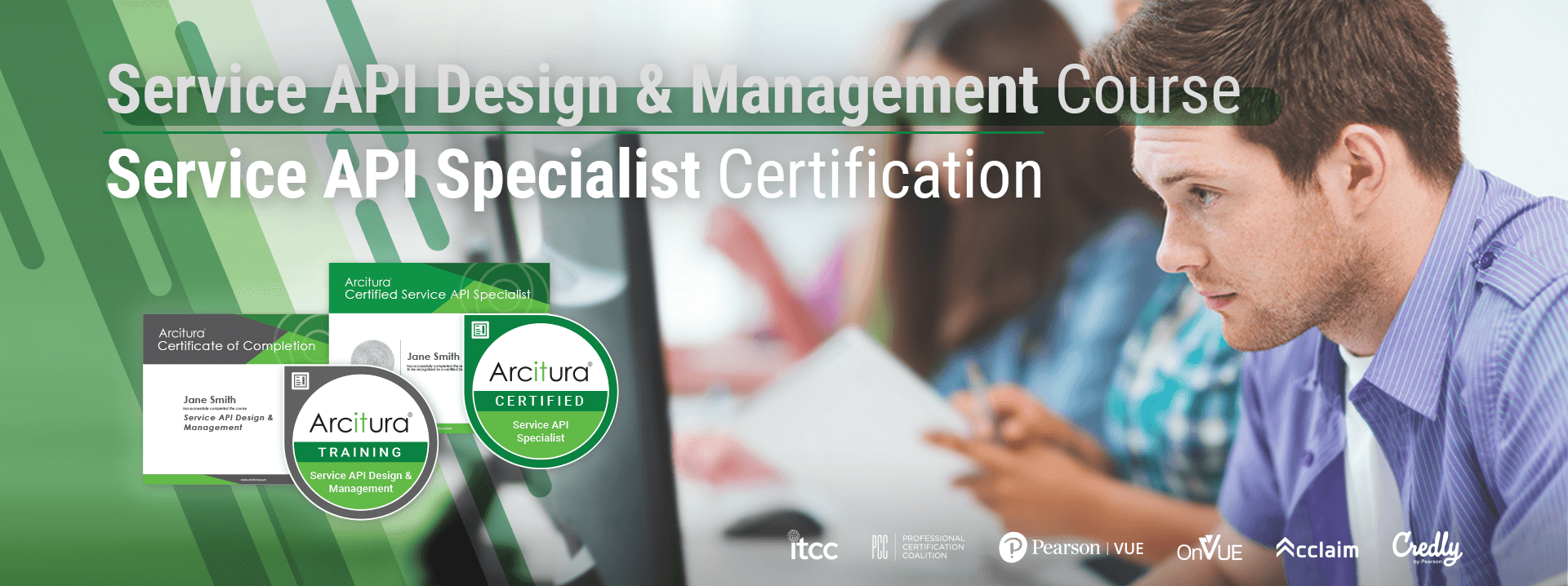
The Service API Design & Management course provides comprehensive coverage of API design and management techniques and models, including versioning. Topics cover serialization, REST and RPC protocols, API coupling types, granularity levels, proxies and gateways, as well as advanced service API design and management practices, binary and non-binary data serialization protocols (Protocol Buffers, Apache Avro) and RPC-based service API protocols (gRPC, GraphQL, Falcor).
Complete the Service API Design & Management course and, optionally, get accredited as a Certified Service API Specialist by passing the certification exam. You can purchase the course now and get the exam later, or you can get them together at a discount as part of the Certification Bundle.
Upon completing the course you will receive a digital certificate of completion, as well as a digital training badge from Acclaim/Credly. Because this course encompasses both the Microservice Professional and Service API Specialist certifications, upon passing the exam you will also receive official Microservice Professional and Service API Specialist digital accreditation certificates and certification badges from Acclaim/Credly, along with an account that can be used to verify your certification status.
If you already completed the Microservice Professional course modules, you can purchase a partial course (or a partial bundle) with only the modules specific to the Service API Specialist track here.
Choose the Certification Bundle to receive the entire course together with the online-proctored certification exam and a set of practice exam questions, all at a bundle discount.
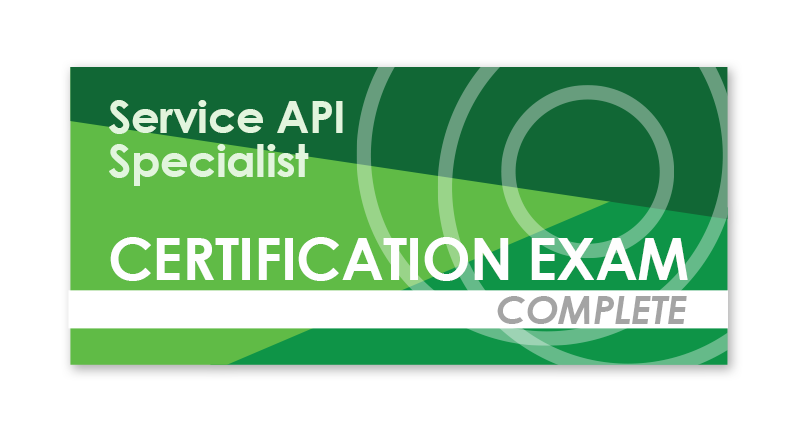
Exam Details

Exam Details
Upon purchasing this course, you will automatically receive access via the Online Interactive eLearning platform. To provide you with the greatest flexibility, you will also have the option to access the course materials via two additional eLearning formats, at no extra cost. All three eLearning formats are briefly described below. A more detailed comparison can be found here.
- For everyday learning: An online interactive eLearning platform with individual lessons, as well as interactive and automatically graded exercises and practice questions.
- For learning on-the-go: A study kit platform with access to full course documents that support online/offline synching, annotations, comments, custom bookmarks and cross-document searches.
- For your reference: A set of printable watermarked PDF documents that you can keep (for all course workbooks and posters).
All three forms of access are subject to Arcitura’s *.
Upon purchase, access to the online interactive eLearning platform (1) is provided within one business day. Access to the study kits (2) and the PDF documents (3) is provided upon request.
The course is comprised of a set of modules. Each module has a set of lessons and is further supplemented with exercises to help reinforce your understanding of key topics. Shown below are the digital contents and the topic outline for each course module:
Module 1: Fundamental SOA, Services & Microservices
This course module provides an easy to understand, end-to-end overview of contemporary service-oriented computing, including concepts and technologies pertaining to modern-day services and microservices, as well as business and technology-related topics pertaining to service-oriented architecture (SOA).
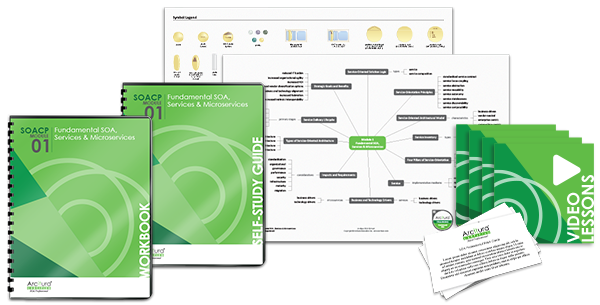
Course Module Contents
Topics Covered
Module 2: Microservice Technology Concepts
This course module focuses on modern service technologies, models and concepts that have established de facto implementation mediums for building contemporary services-based solutions. Also covered are fundamental terms, concepts and models pertaining to cloud computing and cloud-based services.
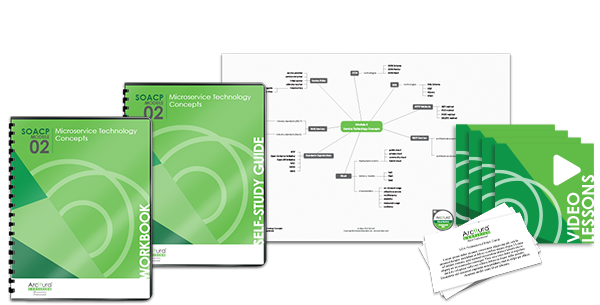
Course Module Contents
Topics Covered
Module 12: Fundamental Service API Design & Management
This course module covers essential topics pertaining to modern-day service API design and management, including API roles, the API lifecycle and fundamental API patterns and coupling types. Also covered are established and alternative data serialization technologies, API gateways and a comprehensive tutorial of REST and related patterns.
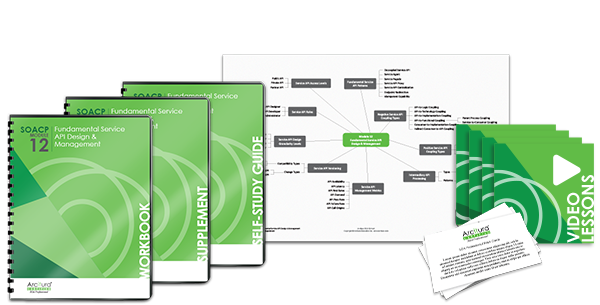
Course Module Contents
Topics Covered
Module 13: Advanced Service API Design & Management
This course module delves into established and alternative service API protocols to explore how each functions and to provide a comparison that helps determine when one service protocol may be more suitable than others. A series of service API design and management patterns are covered, along with an exploration of the service mesh model and how it compares with API gateways.
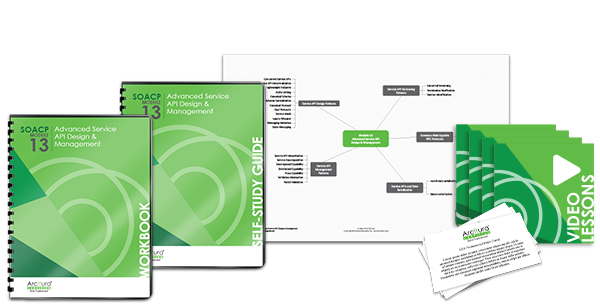
Course Module Contents
Topics Covered
Module 14: Microservice Architecture & Containerization Lab
This course module allows attendees to apply the technologies, concepts, techniques and patterns previously covered in order to complete a set of lab exercises. Participants are required to study case study backgrounds and carry out a series of exercises to solve a number of inter-related problems, with the ultimate goal of applying technologies and design patterns to design their own service API solutions.
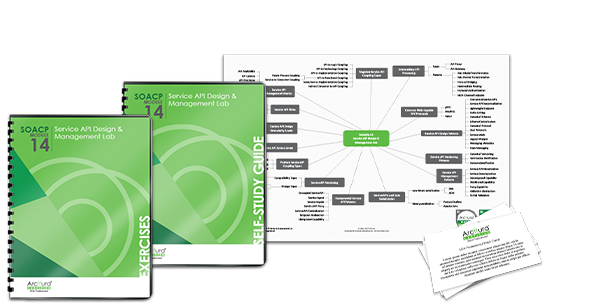
Course Module Contents
Topics Covered
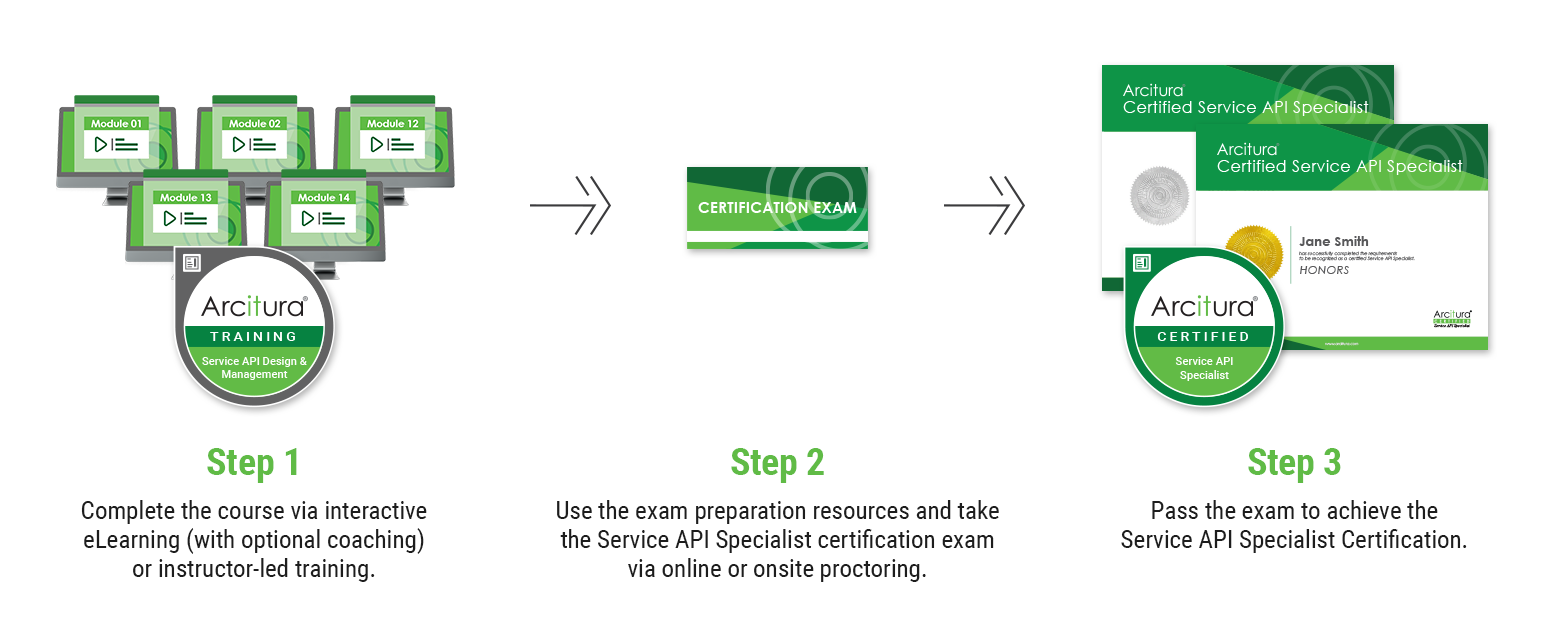
Learn About Arcitura: Take the Video Tour
Watch these helpful informational videos to learn about Arcitura programs, courses and certifications.
About Arcitura
About Arcitura Courses
About Arcitura Certifications
What’s in an Arcitura Course
Comprehensive
Coverage
Each course provides a comprehensive curriculum with 2-3 modules and 20-40 hours of training.
More Than Just
Video Lessons
In addition to standard video lessons, courses include full-color workbooks and reference posters for all
lessons.
Interactive & Graded
Challenges
Courses also include interactive and graded exercises, interactive and graded self-tests and other
supplements.

The Arcitura Difference

EACH COURSE
- is authored by a dedicated courseware development team
- has a self-test, accreditation exam and professional certification
- is available via two different eLearning platforms
ALL COURSES
- undergo a common development process
- are authored to be consistent in quality, structure and style
- share a common vocabulary and symbol notation
- are authored in collaboration with subject matter experts
Take Your Skills Anywhere
Because both courses and accreditations are vendor-neutral, they empower you with skills and credentials that you can take to wherever you need to go.

Lifetime Access Guarantee
Access to the eLearning platforms is dependent on third-party platform providers. As a result, Arcitura cannot make any guarantees or warranties regarding the behavior or availability of the platforms, nor can Arcitura guarantee a specific duration for which these platforms will remain available. When your course is set up on an eLearning platform, your access will have no expiration date and will be provided indefinitely. The PDF documents that can be made available for you to download are yours to keep forever.





